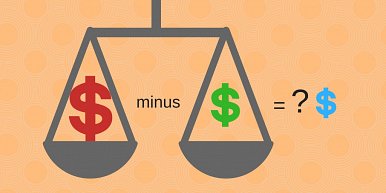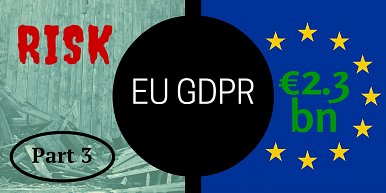-

How to terminate a contract - Part 2 - No Breach
Even if there is no breach of the contract, then the law won’t tie us to it forever. There may be additional grounds that it would be unreasonable for us to continue. Some of them may be more often seen and easier to show than others, but they can be worth considering in cases of doubt. This part 2 follows up part 1 where we considered how to terminate for breach of contract.
-

How to terminate a contract - Part 1 - Breach
We want out. For whatever reason. But trouble can lie ahead if we terminate if we’re not entitled to, or if we don’t comply with what we agreed in the contract. In this part 1 we look at the scenario where the other party is in breach of the contract. In part 2 we’ll look at termination for other reasons.
-

We owe you but you owe us - can we set off the payments?
If two parties each owe each other money, then sometimes the law may assist by permitting the smaller amount to be offset against the larger, resulting in a single payment of the difference. However, it is not the case that unless our contract says otherwise then we are automatically entitled to set off any claim. We need to be aware of the conditions and restrictions of this and tailor our contracts accordingly.
-

Infographic - International Data Transfers from the EU
Quickest ever overview of how to export personal data from the EU/EEA #lawinagraphic
UPDATE: On 16 July 2020, the EU Court of Justice decided that the EU-U.S. Privacy Shield framework could no longer be used to authorise transfers of personal data from the EU/EEA/UK to the USA, and other mechanisms need to be used.
-

EU-US Data Transfers: Update July 2016 - Privacy Shield agreed
From 1 August 2016, the EU-U.S. “Privacy Shield” arrangements are available to allow personal data to be exported from the EU to the US without further formalities. Digital businesses may sigh with relief for now, but we all will be on the lookout for the (seemingly inevitable) legal challenges to the new system.
UPDATE: On 16 July 2020, the EU Court of Justice decided that the EU-U.S. Privacy Shield framework could no longer be used to authorise transfers of personal data from the EU/EEA/UK to the USA, and other mechanisms need to be used.
-

Can we pay a vlogger to advertise products and services?
Of course we can. But we will need to disclose the commercial relationship and, if we fall into the “advertorial” category, then viewers will need to be alerted before engaging with the video…
-

Is Personal Data Now Risk? EU General Data Protection Regulation commentary - GDPR part 3
Some say the EU’s GDPR which will apply from 2018 represents a dramatic shake up of data protection law. We don’t totally agree. Keep Calm and Start Preparing.
-

Is Personal Data Now Risk? EU General Data Protection Regulation commentary - GDPR part 2
The countdown has begun. The EU’s General Data Protection Regulation has finally been published and will apply from 25 May 2018. It’s definitely not too early to begin preparing…
-

EU-US Data Transfers: Update March 2016
Finally we have details of the ‘EU-US Privacy Shield’ arrangements that have been developed to supersede the defunct “Safe Harbor” scheme that previously allowed personal data to be more easily exported from the EU to the USA. On the basis of agreements with – and information on US law and practices provided by – US authorities, the European Commission has published a draft ‘adequacy decision’ which if approved will make this system an option for permitting data transfers to the USA without requiring additional authorisation.
UPDATE: On 16 July 2020, the EU Court of Justice decided that the EU-U.S. Privacy Shield framework could no longer be used to authorise transfers of personal data from the EU/EEA/UK to the USA, and other mechanisms need to be used.
-

MWC16 / 4YFN - Mobile World Congress Roundup
So another MWC and (for the first time for this author) 4YFN done. Eden Legal isn’t a professional investor or an expert in protocol stacks or processor speeds, and also could only chat with a fraction of the exhibitors. However, here are a few things that we noticed soaking up the shows and talking to the ones that we did.
-

ADR/ODR: New website information requirements for EU online traders
Although for many businesses there is no legal obligation to submit to alternative dispute resolution for consumer dispites, online traders and marketplaces must now at least provide consumers with a link to a new EU “online dispute resolution” mechanism.
-

Selling digital content in Europe - more contract changes from the EU
Under proposed new EU rules intended to give consumers additional rights under online contracts, social media, hosting and other services may be classified as “digital content”, including those provided for free but in exchange for provision of personal data.
